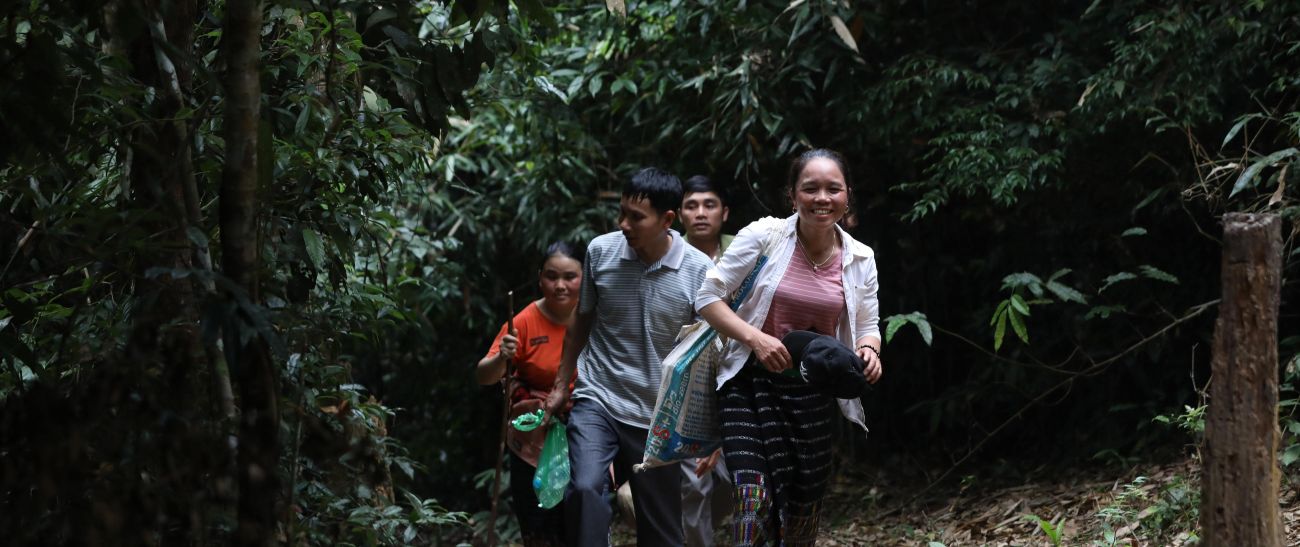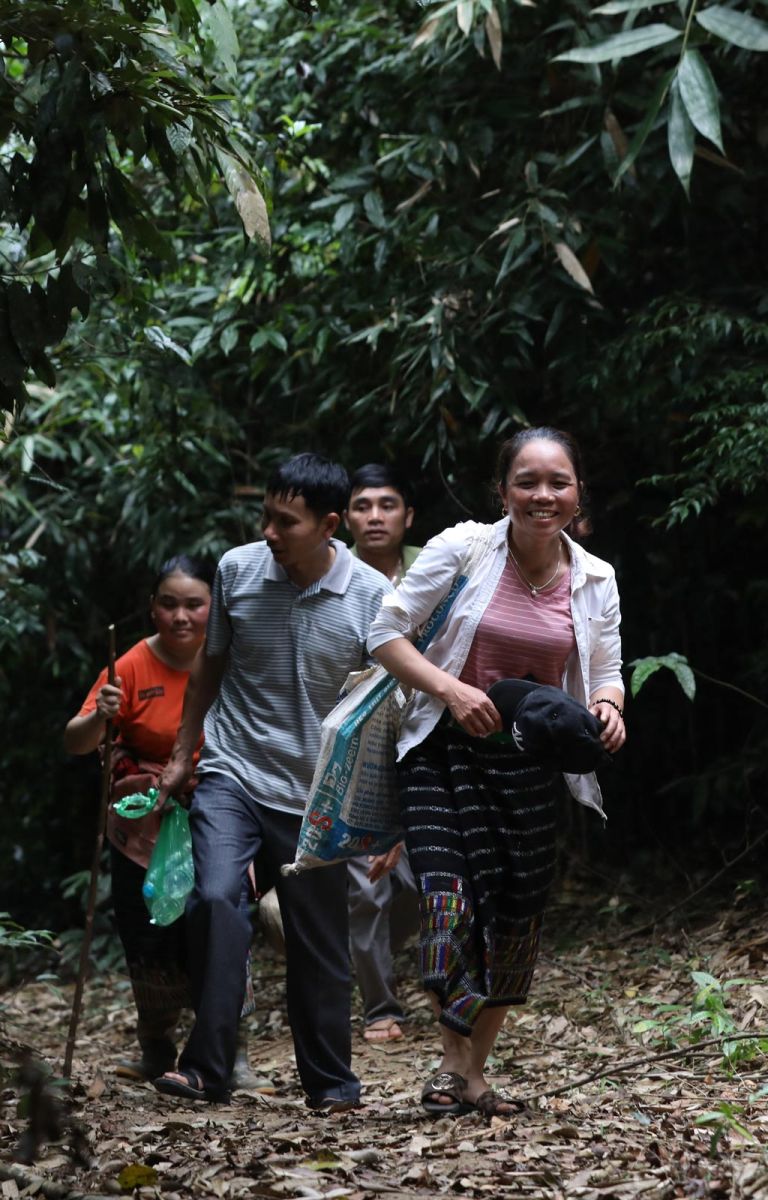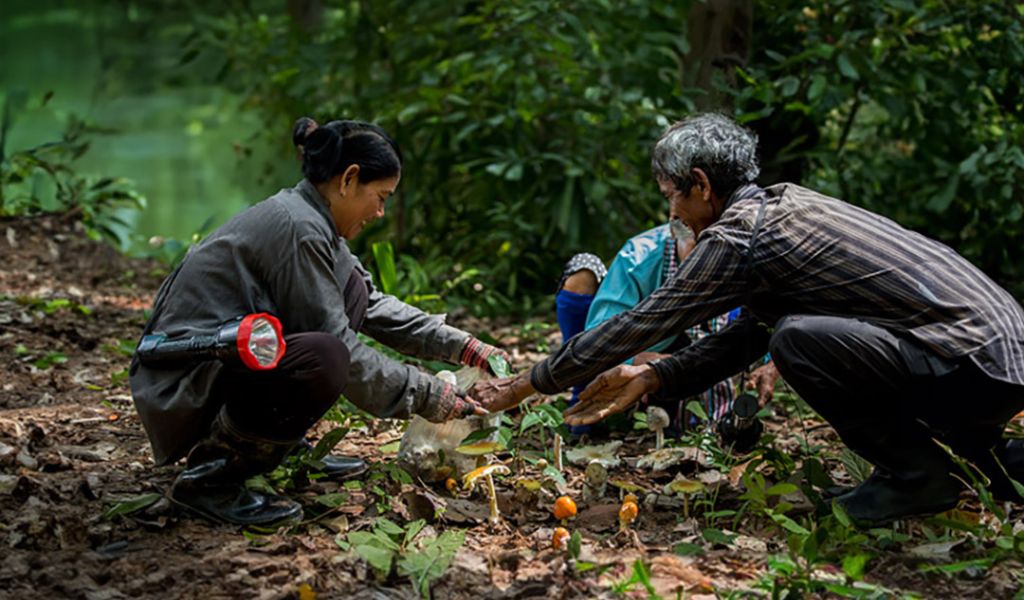

The financial year 2022-2023 will be the final year covered by RECOFTC’s 2018-2023 strategic plan. Among other activities, RECOFTC will implement new and continuing initiatives. They include projects to support research on inclusive forest landscape governance, promote community-based fire management, advance gender equality and social inclusion, and improve systems for managing data on community forestry.
Scaling-up community-based fire management to protect health, livelihoods and forests
Wildfires have had devastating impacts on health, economies and ecosystems in Asia in recent years. The economic costs in northern Thailand exceeded USD 413 million in January 2020 alone. By releasing greenhouse gases, wildfires are fuelling climate change leading to more intense and frequent wildfires.
“The high-tech solutions and no-fire policies that governments have been using are failing,” says David Ganz, executive director of RECOFTC. “Community forestry’s people-centred and multistakeholder approaches are the answer.”
That’s why RECOFTC will be partnering with the United States Forest Service, governments and communities in high-risk landscapes to scale up community-based fire management. Our new project, launching in October 2022, will harness the approaches and institutions of community forestry to accelerate a shift from fighting wildfires to preventing them.
The project will support communities in Cambodia, Lao PDR, Thailand and Viet Nam. It will help them develop and implement fire management plans, monitor their forests and relay information about fire risks to the authorities. It will work with governments to ensure that laws and policies promote inclusive forms of forest management such as community forestry. These types of models can provide a strong foundation for community-based fire management.
Campaign works to ensure women and men can participate as equals in managing Cambodia’s natural resources
In Cambodia, community forests and community-protected areas are key government-mandated approaches for reducing rural poverty, promoting sustainable use of natural resources and providing equitable benefit sharing.
Women need to be full partners in managing these areas. But they routinely face resistance from their families and communities when they try to participate. They face harassment, physical and psychological stress, and sexual assault. To address this, a new project called Rise Up! will train and support members of women’s community forest and community protected areas networks to lead campaigns for positive change.

“The project will encourage men, women, families and communities to acknowledge women as essential and equal partners in community-based management of natural resources,” says Kalyan Hou, director at RECOFTC Cambodia. “It will focus on preventing harmful power dynamics and gender-based violence by changing attitudes and behaviours at the individual, interpersonal and community levels.”
Rise Up! activities will take place in three community forests and five community-protected areas in Pursat and Kampong Chhnang provinces. The project team will share their experiences with national, regional and international audiences.
RECOFTC will lead Rise Up! in collaboration with the non-profit Gender and Development for Cambodia (GADC), the Ministry of Agriculture, Forestry and Fisheries, the Ministry of Environment, the Ministry of Women's Affairs and the Youth Leadership Lab for Gender Equality.
The project was one of five winners of the 2022 Resilient, Inclusive, and Sustainable Environments (RISE) awards. It was funded by the United States Agency for International Development and managed by the International Union for Conservation of Nature.
Strengthening systems for managing data on community forestry
In recent years, millions of people across South-East Asia have been empowered to manage local forests. But as countries in the region continue to expand various forms of community forestry, they risk operating in the dark. This is because of limitations in their systems for collecting and accessing data about the progress, effectiveness and sustainability of community forestry programs.
As a result, community forestry programs are not often integrated into development goals. These include National Economic and Social Development Plans and the Nationally Determined Contributions that countries have pledged under the Paris Agreement on climate change.
“The lack of strong information systems across the ASEAN region is hindering efforts to achieve climate change targets as well as the Sustainable Development Goals that depend on strong forests,” says David Ganz, RECOFTC’s executive director.
To help address this situation, RECOFTC and the Asian Forest Cooperation Organization will be partnering with the Korea International Cooperation Agency. Together, they will help ASEAN Member States improve the collection and availability of high-quality data on community forestry.
After assessing the status of existing information management systems, RECOFTC will support forestry officials from the region to improve their systems or develop new ones. The aim is to ensure that ASEAN Member States can collect, update, analyze and share data on community forestry in ways that better serve decision-makers and the public.
Providing ongoing support to researchers exploring inclusive forest landscape governance
The Explore research network hosted by RECOFTC in partnership with the Center for International Forestry Research (CIFOR) will enter its second phase, which runs from October 2022 to September 2027.
Close to 300 researchers in seven teams will be implementing projects that won grants during Explore’s first phase.
Explore will continue to focus on supporting research on forest landscape governance and on building the capacities of researchers to undertake such work. Close to 300 researchers in seven teams will be implementing projects that won grants during Explore’s first phase.
RECOFTC will also announce a new call for proposals and will provide training and other support to researchers as they develop concept notes into fundable proposals.
“The Explore team learned important lessons during Phase 1 of the project that we will be applying in Phase 2,” says Sirichai Saencharnchai, Explore’s interim manager at RECOFTC. “We will be scaling-up the capacity development program, adding more workshops on financial and project management, and increasing the number of interactions between research groups and their mentors.”
